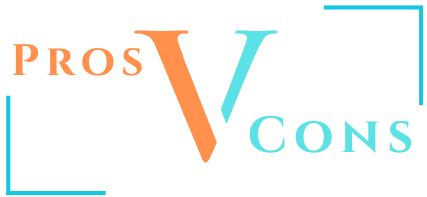Pros and Cons of Being Self-Reliant
Self-reliance is a positive trait that includes independence, responsibility for oneself, and the ability to meet one’s own needs without needing others. In our fast-paced and changing world, being self-reliant also offers empowerment and freedom.
While self-reliance has many benefits, it also has its drawbacks. This article will examine the positives and negatives of being self-reliant, so you can better understand how self-reliance influences the way you live.
|
|
Pros of Self-Reliance
- Increased Independence
Self-reliant individuals can handle challenges that arise in their life without relying on someone else. Being independent breeds confidence and the ability to face difficulties in life with resilience and determination. - Enhanced Problem-Solving Ability
Being self-reliant nurtures critical thinking and real-world problem-solving ability. Instead of simply waiting for someone to help you, when you are self-reliant you will actively attempt to find solutions; because of this, the self-reliant individual can enhance their natural resourcefulness. - Enhanced Confidence and Self-Esteem
Knowing that you can take care of your own needs and know how to solve your own challenges adds to your self-confidence. This confidence can turn into a stronger sense of personal worth and capability. - Financial Independence
Financial independence, or the ability to take care of your own needs without needing others, frees you from the stress that comes with financial uncertainty. It also encourages responsible financial practices. - Self-Growth and Skill Development
Self-reliant individuals are often willing to take the initial steps to gain new skills and new knowledge. The process of continuous self-improvement leads to personal growth or professional growth. - Reduced Reliance on Others
By being self-reliant, an individual can avoid the frustration that comes from their reliance on an unreliable party. This reduces the overall disappointment involved in decision-making and can contribute to a greater sense of self-assurance. - Freedom and Autonomy
Self-reliance gives someone freedom from outside control or influence. Individuals now have the ability to make their own choices or follow their own desires without asking for or needing permission or consideration of someone else. - Better Ability to Adapt to Change and Challenges
Self-reliant people adapt to a change without the help of someone else. Self-reliance breeds resilience, and because they can handle obstacles in their lives, they are more likely to be ready for the unexpected events that the world might surprise them with.
Cons of Self-Reliance
- Isolation and Loneliness
Being self-reliant may mean you become socially isolated and independent, as you start to become discouraged from getting help or being socially connected to other people. - Reluctance to Ask for Help
People who are self-reliant may find it hard to ask another party for help, even when they absolutely need it. Not asking for help can halt one’s overall progress or allow a simple issue to continue and grow into a larger problem. - Increased Stress and Pressure
Handling family, work, and community independently can hyper-pressurize a person. A self-reliant individual can handle three areas of their life individually but quickly become overwhelmed when they are trying to multitask each area of focus. - Perceived Arrogance and Pride
Self-reliance can be interpreted as being arrogant or unable to accept or promote collaboration. Individuals can tend to take on issues first before discussing the issue with others or requesting help. - Difficulty with Cooperation
Self-reliance can cause obstacles with coworkers or friends if a person feels the need to be unnecessarily self-reliant. It can become difficult for an individual to trust or work collaboratively. The friend or coworker can feel worthless or excluded from the problem-solving process. - Missed Opportunity for Assistance, Support, or Connection
Individuals who refuse to ask for and receive assistance, regardless of the form it might be offered, often miss opportunities to build valuable support systems for both emotional and professional growth or support. - Burnout
Individuals may quickly reach the point of burnout if they continue to take on burdens without delegating or asking for help. Self-sufficient people may not identify when they are taking on too much. - Limited Perspective
Solving problems alone may lead to a narrow view of the circumstances, while the opinion of others may provide beneficial input or unique solutions that self-sufficiency chronic alone cannot render.
Conclusion
There are plenty of advantages associated with self-reliance, such as confidence, independence, and flexibility; however, there are also risks, including feeling alone or isolated, burnout, and being unwilling to ask for help.
It’s important to balance being self-sufficient and the use of others to stay healthy and also support one another in relationships. A combination of self-sufficiency and help from others works perfectly for continuous self-development without losing healthy relationships.

